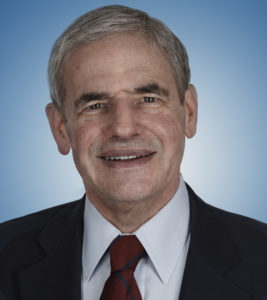As reported in the January 8, 2010 Wall Street Journal, “Fed’s Yellen Staunchly Defends Fed’s Bond Program,” the Vice Chair again has defended the current “quantitative easing” program of purchasing $600 billion of government debt. Dr. Yellen issued the defense in a speech, “The Federal Reserve’s Asset Purchase Program.” She cited a working paper by Federal Reserve and Federal Reserve Bank of San Francisco economists, “Have We Underestimated the Likelihood and Severity of Zero Lower Bound Events?”
Dr. Yellen and the researchers accept Keynesian fallacies, and thus come to false conclusions. One fallacy is that printing money creates growth. Dr. Yellen previously explained why the bond purchase program is necessary: “I’m having a hard time seeing where really robust growth can come from…” Jeffrey Tucker responded with a suggested rule: “[N]o one who does not understand how economies grow without money printing should be given any power over economic life.” As noted by Frank Shostak, “[C]ommentators who subscribe to the view that the acceleration of money pumping can fix things hold that something can be created out of nothing.”
A second fallacy is the idea that deflation should be avoided at all costs, leading to the promotion of inflation. Deflation is, in fact, a necessary post-bubble adjustment. Deflation allows the healing needed for economic recovery.
A third fallacy is that the Fed’s manipulation of interest rates has positive economic effects. In fact, it creates illusory growth, distorts investment, and encourages consumption at the expense of saving.
A fourth fallacy is that the Fed should lower the value of the dollar to promote exports. This belief is based on mercantilism, the idea that exports should be favored over imports. Devaluation, like tariffs, favors a special interest—exporters—at the expense of consumers and the general economy.
A fifth fallacy is fundamental. This is the belief that central planners, rather than the market, can rationally determine the money supply and interest rates. Central planning always fails, whether conducted by a government or its central bank. Dr. Yellen is oblivious to the fact the Fed has a record of creating booms and busts. Nor does she acknowledge the failure of the Fed in its primary responsibility, price stability: “The FOMC is committed to price stability and has a solid track record in achieving it.” In fact, the value of the dollar has fallen over 95% since the creation of the Fed in 1913.
The Fed has its own interests, including its survival and its maintenance of unfettered power. It also favors special interests, including financial institutions and exporters. What suffers is the public interest.
References:
Chung, Hess, et al., “Have We Underestimated the Likelihood and Severity of Zero Lower Bound Events?” Federal Reserve Bank of San Francisco Working Paper Series, Jan. 2011, http://www.frbsf.org/publications/economics/papers/2011/wp11-01bk.pdf.
Di Leo, Luca, “Fed’s Yellen Staunchly Defends Fed’s Bond Program,” Wall Street Journal, Jan. 8, 2011, http://ur.ly/Aryd.
Higgs, Robert, “The Latest Reported Bankruptcy: Mainstream Economics,” Commentary, The Independent Institute, Jan. 9, 2009, http://www.independent.org/newsroom/article.asp?id=2404.
Higgs, Robert, “Recession and Recovery– Six Fundamental Errors of the Current Orthodoxy,” Commentary, The Independent Institute, March 5, 2009, http://www.independent.org/newsroom/article.asp?id=2448.
Hilsenrath, Jon, “Fed’s Yellen Defends Bond-Purchase Plan,” Wall Street Journal, Nov. 16, 2010, http://ur.ly/ABXi.
Shellenberger, David E., “Fed Up With the Fed,” Aug. 24, 2010, https://www.daveshellenberger.com/fed.
Shellenberger, David E., “President Obama: Mercantilist,” Dec. 5, 2010, https://www.daveshellenberger.com/president-obama-mercantilist.
Shostak, Frank, “The Fed Cannot Fix Itself,” Mises Daily, June 2, 2004, http://mises.org/daily/1540.
Shostak, Frank, “Does Loose Monetary Policy Cause Economic Growth,” Mises Daily, Sept. 1, 2009, http://mises.org/daily/3669.
Tucker, Jeffrey, “Where Does Economic Growth Come From?” Mises Economics Blog, Nov. 16, 2010, http://blog.mises.org/14649/where-does-economic-growth-come-from/.
Yellen, Janet L., “A View of the Economic Crisis and the Federal Reserve’s Response,” Presentation to the Commonwealth Club of California, June 30, 2009, http://www.frbsf.org/news/speeches/2009/0630.html.




